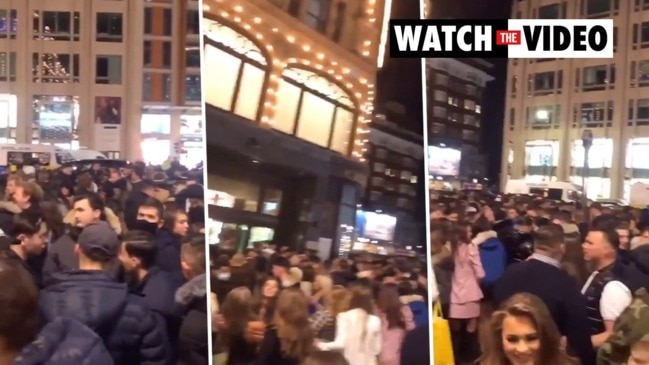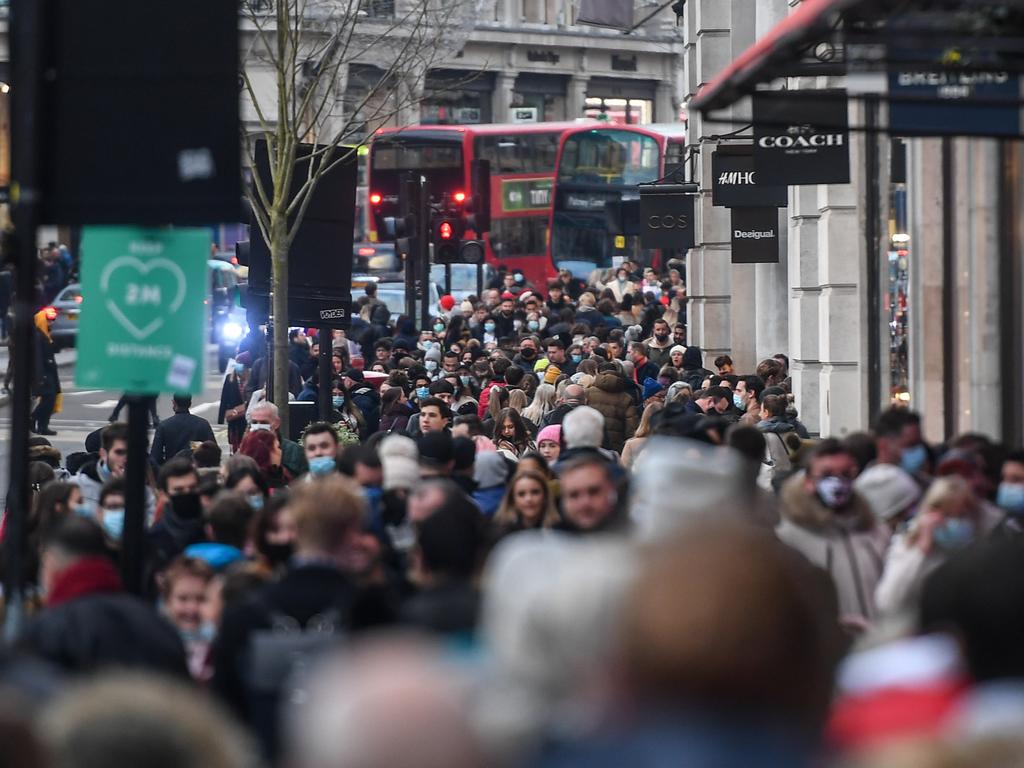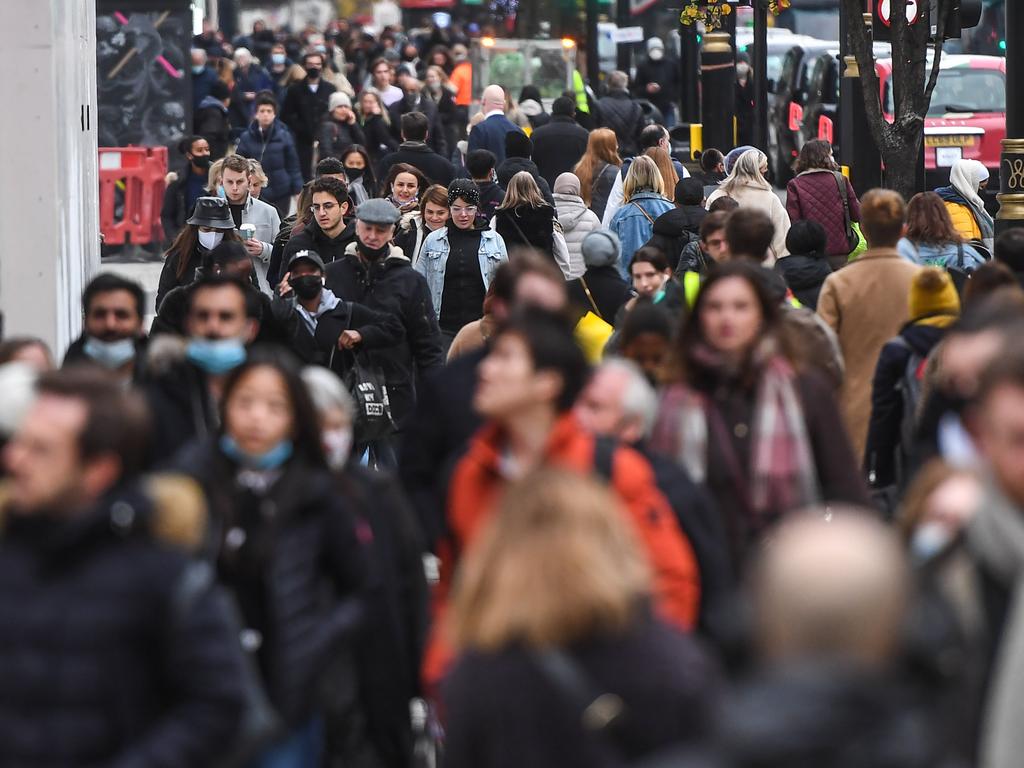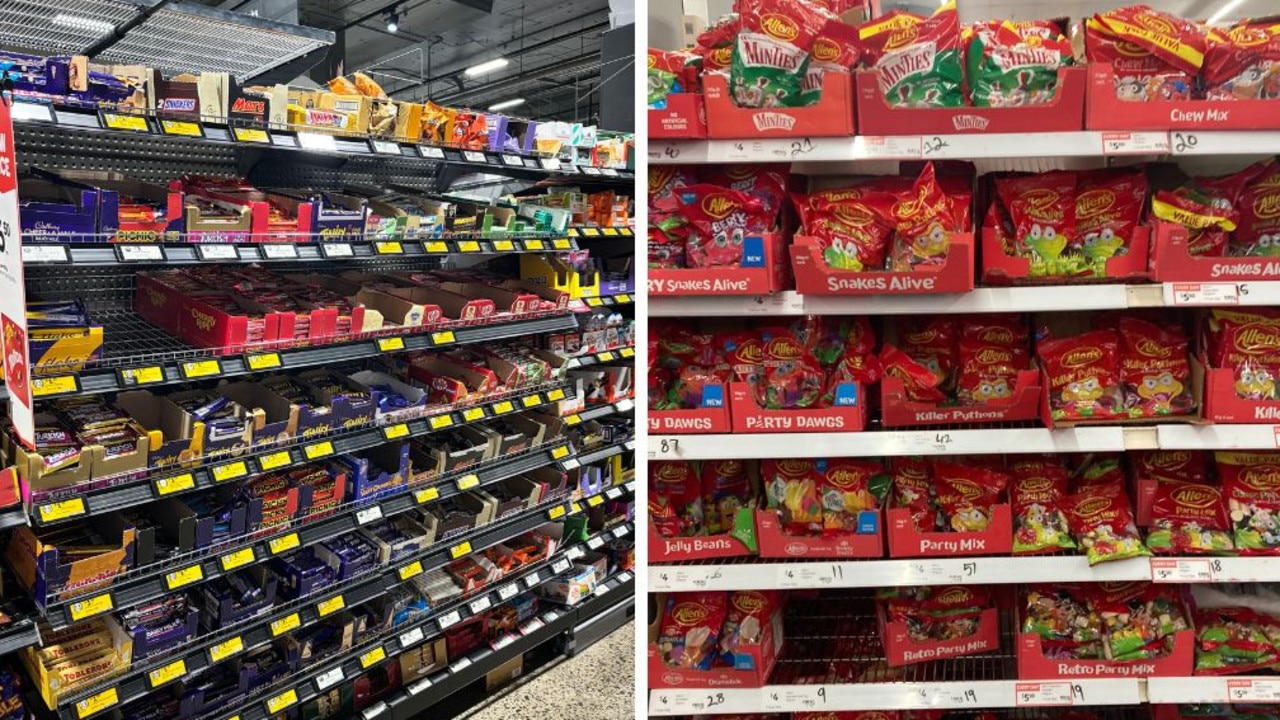Coronavirus: Fears UK infections could see ‘severe peak’ despite vaccine
The UK has been warned a “severe peak” of COVID infections is looming, with shocking photos proving the country’s virus fight is far from over.

Despite the UK being the first Western country to approve a COVID-19 vaccine there are still concerns infections will continue to rise into 2021.
The country is in the midst of its second wave of coronavirus and there are still critical issues officials need to work through before the nation and it citizens can start to heal from the horrific impacts of the pandemic.
The virus has killed more than 60,000 people since the first UK cases emerged in March and had a devastating economic impact on both individuals and businesses.
Not only are cases and fatalities are still on the rise, but now it seems people have grown weary of COVID safety restrictions, which experts have warned could spark a wave of new infections.
Photos emerged over the weekend showing hundreds of maskless people swarming outside a popular department store in London.
Harrods yesterday afternoon. What a sick joke. Imagine how NHS workers feel seeing such selfish reckless behaviour? 👇 pic.twitter.com/gKEuEVuipJ
— Piers Morgan (@piersmorgan) December 6, 2020
Images showed a rowdy crowd trying to force their way into a Harrods store, with the scenes so intense that it triggered fears of a terrorist attack.
One witness told The Sun he was setting up his coffee stand when “suddenly people started running”.
“There were about 200 to 300 people, and I initially thought it was a terrorist attack,” he said.
“When you’re in London and everyone starts running a certain way, you think the worst. I know it sounds ridiculous, but you can’t really know.”
RELATED: When Australia will get the vaccine


RELATED: Virus expert debunks biggest COVID-19 vaccination myth
Other people described bottles being thrown and a security guard being punched.
It wasn’t just the Harrods store that was overrun with shoppers, more photos showed streets across London’s shopping precincts packed with people on the first weekend after restrictions were eased.
Plans to allow up to three households to meet in an extended “bubble” for a four-day period over Christmas have also been criticised as an opportunity to seed a new round of infections.
Foreign Office Minister James Cleverly criticised the crowds, saying the photos of people ignoring social distancing were “frustrating”.
“The vaccine, without a doubt, is a light at the end of the tunnel, but ultimately we still have to exercise personal responsibility,” he told Sky News.
“We’re not there yet, it will take some time to roll this vaccine out and it will take some time before we go back to normality.”
Andrew Hayward, professor of infectious disease epidemiology at University College London (UCL) and a member of the Scientific Advisory Group for Emergencies (Sage) echoed these concerns.
He warned the pandemic was “certainly not all over” and said it is likely the UK could still see a “severe peak” in coronavirus cases in 2021.
RELATED: Has coronavirus made you nervous about travelling? Have your say in our poll

“We still have the winter to get through, which is likely to be the time that is most favourable for COVID transmission,” Professor Hayward told BBC Radio 4.
“We could still see very severe peak, particularly in January is when I predict that would be most likely, if we take our foot off the pedal on this.
“And that would be so sad, considering we’re going to be in a stage where we can protect the most vulnerable during December, January, February and start to get back to normal in late Spring, early summer.”
Britain’s latest COVID-19 figures show the virus is still running rampant across parts of the country.
The country recorded 17,272 new cases on Sunday, up by more than 5000 compared to the same time last week.
There were also 231 coronavirus deaths reported, which is an increase on the 215 fatalities recorded last Sunday.
The UK is expected to start rolling out the Pfizer-BioNTech vaccine on Tuesday, with elderly residents in aged care homes set to be some of the first citizens to receive the jab.
The vaccine will be administered in two doses, three weeks apart, with initial batch set to cover about 400,000 people.
Professor Hayward said while the vaccine will make a “massive difference” there were “still are some unknowns and cause for caution”.
He said one of the main concerns is not knowing how long the vaccine will provide immunity for.
“We know it will last at least three months. The strategy at the moment is to vaccinate those people at most risk of becoming critically ill and we know the vaccines will do that so vaccinating those people will make a big difference to mortality,” Professor Hayward said.
“But if we want to start to impact on reducing the overall levels of the virus we need a vaccine that can help to also stop shedding of the virus and asymptomatic transmission.
“The proportion of the population that we would need to vaccinate to achieve herd immunity would vary a lot depending on whether or not it prevents asymptomatic shedding of the virus.”
National Health Service (NHS) national medical director Stephen Powis said the roll out of the vaccine across the UK would be a “marathon not a sprint”.
The government will issue doses of the vaccine to priority groups by age and health condition, meaning younger groups shouldn’t expect to receive the shot until spring or summer in 2021.
“Despite the huge complexities, hospitals will kickstart the first phase of the largest-scale vaccination campaign in our country’s history from Tuesday,” Mr Powis said.
“Hardworking staff will once again rise to the challenge to protect the most vulnerable people from this awful disease.”




